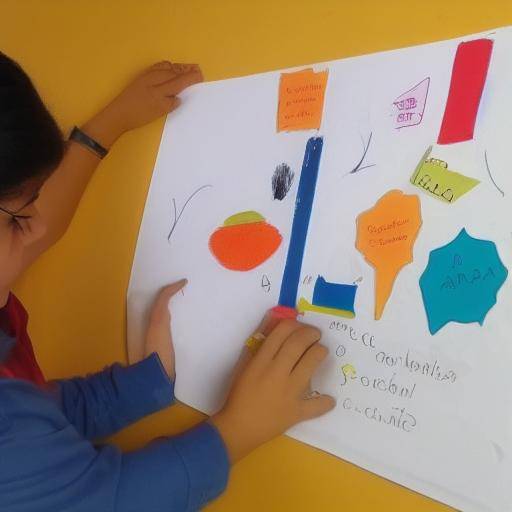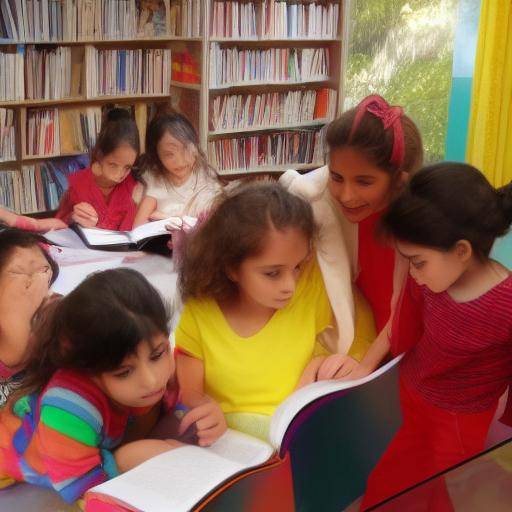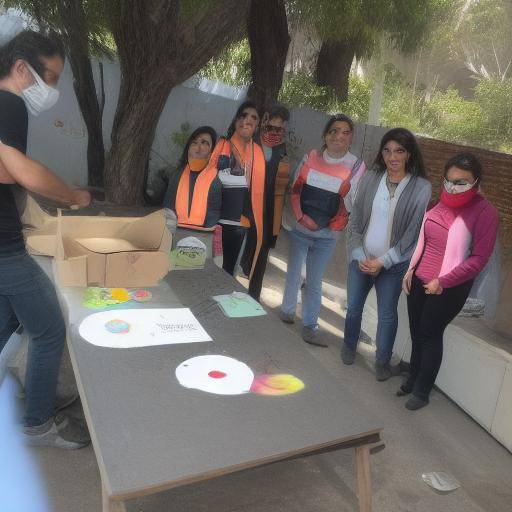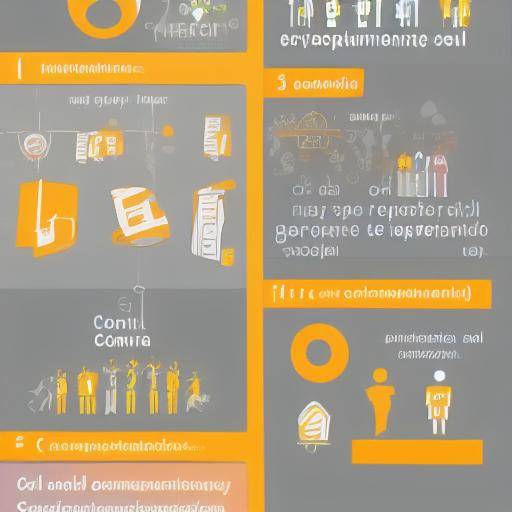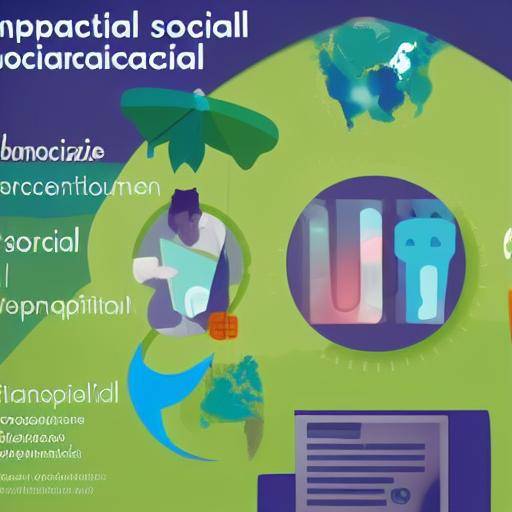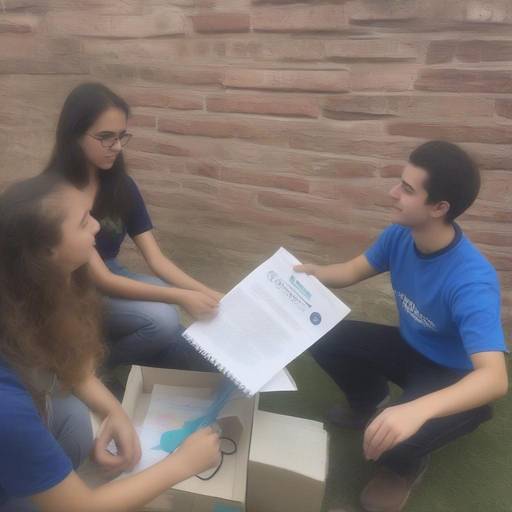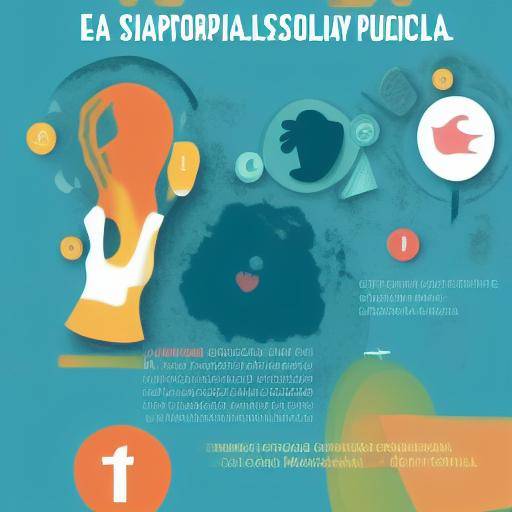
Introduction
At present, the promotion of self-government in students has become a key objective for the integral development of young people. The ability to make decisions, take responsibility and face challenges independently is fundamental in the educational process. In this article, we will explore various projects dedicated to promoting student autonomy, its importance in education and its impact on academic and personal development. Through the understanding of these projects, it is sought to provide readers with a detailed analysis and practical advice to implement strategies that promote autonomy in the educational field.
History and Background
The notion of educational autonomy has its roots in pedagogical philosophy, where the development of self-direction capacity in learning is emphasized. Throughout history, visionary educators have advocated an educational approach that promotes independence and decision-making in students. From the first pedagogical theories to contemporary movements in education, the promotion of autonomy has become a fundamental pillar.
Within this context, innovative projects emerged that focus on the development of autonomy in students. These projects range from initiatives based on the active participation of students in managing their own learning to the development of problem solving and decision-making skills. As education evolves, these projects continue to play a crucial role in the formation of independent and competent individuals.
Analysis in Deep
Promoting student autonomy entails a number of significant benefits at both the educational and personal levels. Students who have the opportunity to make decisions and assume responsibilities tend to develop greater self-confidence, problem solving skills and a proactive attitude towards learning. In addition, the development of autonomy fosters a more participatory and collaborative educational environment, where students become active agents of their own learning process.
However, there are also challenges associated with fostering student autonomy. In some cases, students may face difficulties in taking responsibility or making effective decisions, which requires a strategic pedagogical approach to support their development. In addition, the successful implementation of educational autonomy projects requires constant commitment by educators and the school community as a whole.
Comprehensive review
In analyzing specific applications of autonomy projects in educational settings, multiple approaches and best practices are evident. From the implementation of self-directed research projects to the promotion of collaborative projects as a means of developing leadership and decision-making skills, the diversity of strategies highlights the wealth and versatility of this educational approach.
The comparison of different approaches and methods for fostering self-government in students can identify the strengths and limitations of each strategy, which in turn contributes to the continuous evolution of effective pedagogical practices. It is essential to recognize that there is no single and universal approach to promoting educational autonomy, but rather a variety of approaches tailored to specific needs and contexts.
Practical Tips and Accessible Recommendations
To facilitate the successful implementation of autonomy projects in the educational field, it is essential to provide practical advice and actionable recommendations. Some effective strategies include promoting self-regulation of learning, designing student-centred learning environments and integrating decision-making opportunities into the educational curriculum. These practices not only promote autonomy, but also enrich the educational experience of students and promote meaningful and lasting learning.
Industry Perspectives and Expert Reviews
Experts in the educational field agree on the importance of fostering autonomy in students as a fundamental part of a comprehensive pedagogical approach. From pedagogues and psychologists to educational professionals, the expert community emphasizes the need to empower students to assume an active role in their learning process. In addition, the implications of educational autonomy in the preparation of students for the challenges of the real world are highlighted, where the ability to make informed decisions and act autonomously is fundamental.
Case Studies and Practical Applications
Case studies provide a detailed overview of the specific application of autonomy projects in educational settings. From primary schools to higher education institutions, success stories provide examples of effective strategies, measurable results and lessons learned that can serve as inspiration and guidance for other educators and institutions.
In analyzing these practical applications, the positive impact that autonomy projects have on the integral development of students is evident, including the strengthening of social, emotional and cognitive skills that are fundamental to their success throughout life.
Future Trends and Predictions
As education continues to evolve, there are promising trends in fostering self-government in students. From the integration of educational technologies that support the self-direction of learning to the emphasis on the development of critical thinking skills and problem solving, predictions point to a more student-centred and empowering educational approach.
In addition, continuing research in the field of educational autonomy is expected to provide new perspectives, innovative approaches and effective strategies that enrich educational practice and contribute to the integral development of students.
Conclusions and FAQs (FAQs)
Conclusions
In short, projects aimed at the development of student autonomy represent a powerful tool to enrich educational experience and promote personal and academic growth. By empowering students to take an active role in their learning, skills and attitudes are cultivated that transcend the educational sphere and become fundamental pillars for success throughout life.
FAQs
1. What is the importance of fostering autonomy in students?
Promoting student autonomy is crucial for their integral development, as it allows them to build decision-making skills, self-confidence and responsibility, preparing them to face the challenges of adult life.
2. What are the best strategies to promote autonomy in the classroom?
Some effective strategies include promoting self-regulation of learning, creating student-centred learning environments and integrating decision-making opportunities into the educational curriculum.
3. What are the long-term benefits of fostering student autonomy?
Promoting autonomy in students not only positively impacts their academic development, but also prepares young people to become autonomous, proactive and resolutive individuals in their adult life.
4. What challenges could arise when implementing projects of autonomy in the field of education?
The most common challenges include resistance to change by some educational institutions, the need for teacher training and the adaptation of curricula to integrate the autonomy approach.
5. How can parents support the development of autonomy in their children?
Parents can promote autonomy in their children by providing them with spaces for decision-making and responsibilities, encouraging them to make informed decisions and supporting them in their process of self-discovery and growth.
6. What is the role of the educator in promoting autonomy in the classroom?
Educators play a key role in creating an enabling environment for student autonomy development, supporting their decision-making, promoting self-reflection and providing opportunities for leadership and self-management.
In conclusion, the promotion of autonomy in students through educational projects represents a valuable opportunity to enrich the learning experience and cultivate skills fundamental to personal and professional success. In understanding the importance, benefits and challenges associated with the implementation of these projects, educators, parents and actors in the educational field can work together to promote an educational approach that empowers students and prepares them for a promising and successful future.










